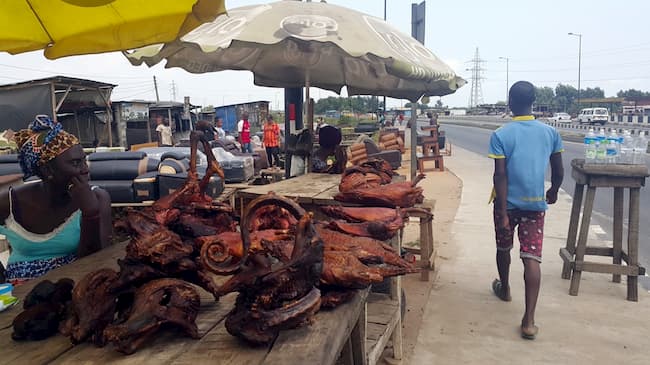A report revealed that amid the COVID-19 pandemic Nigerians continue to consume bush meat, despite findings that draw a connection to zoonotic diseases like coronavirus.
The report by WildAid titled, ‘Widespread bush meat consumption across Nigeria post-COVID report finds, but points to paths for reduction’.
It stated that the consumption of bushmeat had dropped during the Ebola period, as many feared being infected.
“The report found 71 percent of participants had consumed bush meat at some point in their lives, and 45 percent had consumed it within the last year.
READ ALSO: ICT Boosting Farmers’ Profits, Says IITA
“COVID-19 was of concern to 27 percent of consumers who said they stopped buying bush meat, in a country that was previously impacted by an Ebola outbreak.
“Bush meat consumption dipped at that time, but increased again after publicity died down,” the report stated.
It was also revealed that the consumption of bushmeat was mostly observed in rural areas but has gradually found its way into urban areas.
According to the Director of the Federal Department of Forestry of the Federal Ministry of Environment, Rasak Adekola, many of these poachers are unaware of the fact that the hunted animals are protected by law.
Adekola commended the work of WildAid in its campaign against poaching wildlife animals and ensuring that zoonotic diseases are less common.
“The term ‘bushmeat’ is freely used in Nigeria to describe wildlife species erroneously believed to be free and available for poaching and consumption.
“In most cases, poachers are oblivious of the fact that these wild animals are protected by law.
“WildAid’s campaign against bush meat consumption is a highly commendable and timely initiative that will not only assist in ensuring that our wild animals are left in the wild, but also help in the control, and keeping zoonotic diseases at bay.
“The outcome of the survey is quite revealing and will definitely form the basis for our step-up action against bushmeat consumption in Nigeria,” Adekola said.











